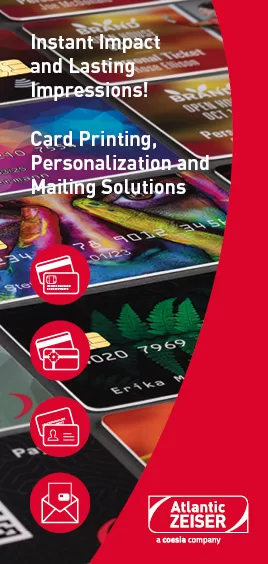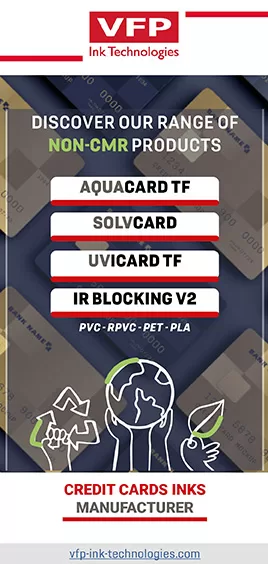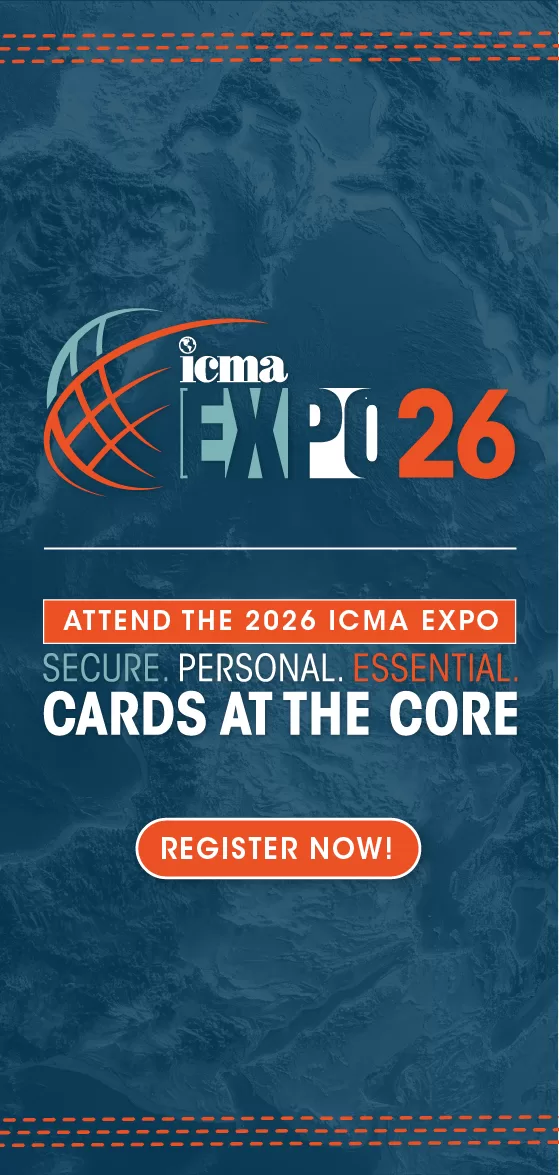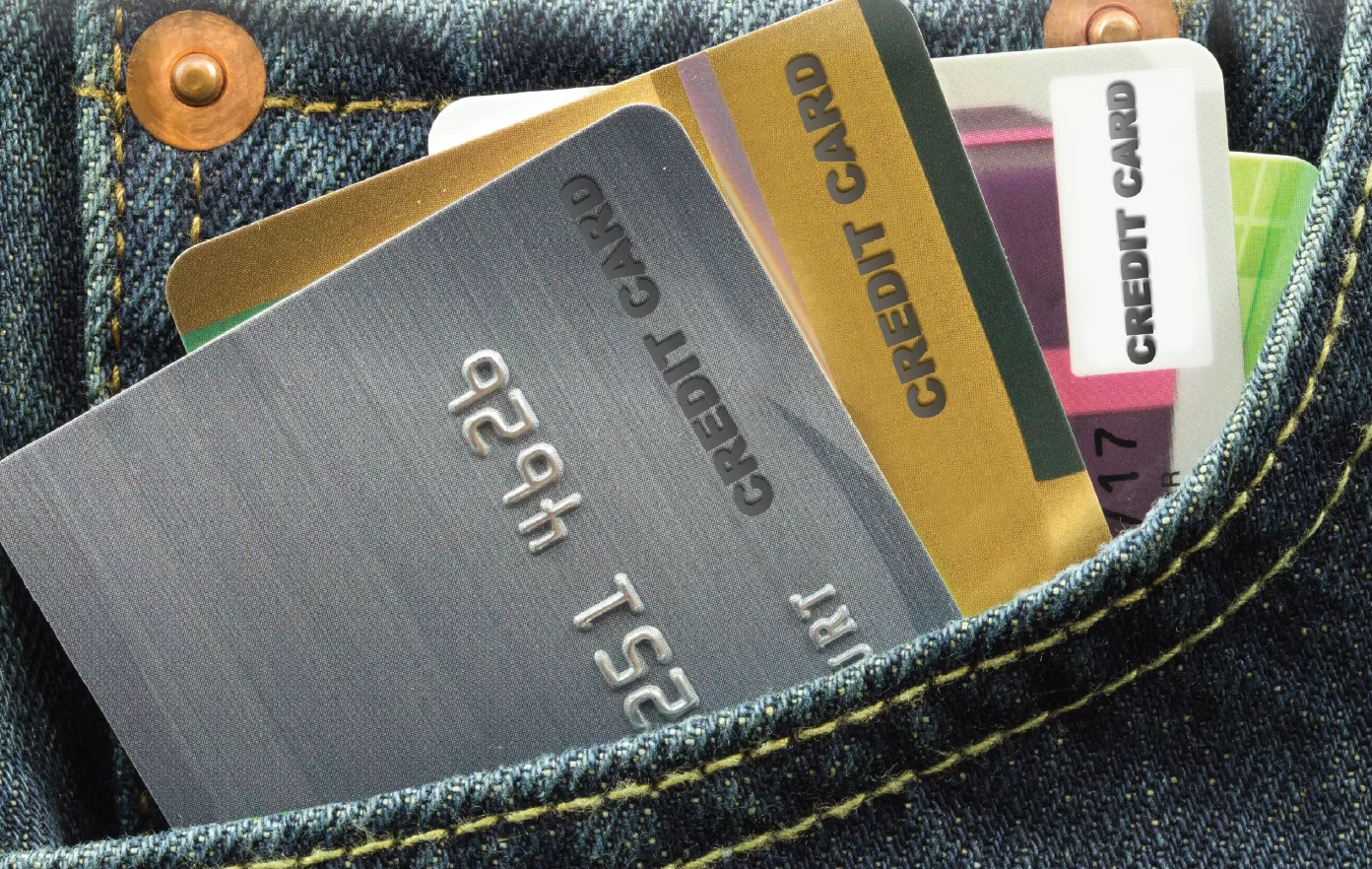
by Jennifer Kohlhepp | CM Magazine Featured
Alternative Materials Card Standards Update
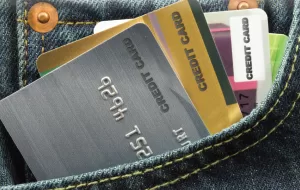
By Dave Tushie, Magellan Consulting Inc., ICMA Standards and Technical Representative
Those who follow my regular reports from card standards meetings are aware that a new work item for alternative materials is being considered. The ISO Standards Committee is mindful of the industry trend toward materials of construction other than traditional PVC in card manufacturing. ABI Research has forecast that alternative materials will attain about 50% market share by 2028. And Mastercard has announced its requirement that its bank cards be manufactured from sustainable materials beginning in 2028. These are just two indicators of this trend.
With industry traction accelerating, it has been observed that no ISO Card Standards documents refer to eco cards, sustainable cards, recycled content, carbon footprint, etc. As the conversation has evolved in the ISO Standards Committee, it was clear that the interest is in alternative materials such as those used in eco/sustainable cards. The committee is considering some options such as an informative technical report(s) with no requirements, a test method standard with new tests not included in ISO 24789-1 and ISO 10373, or alternatively, a dedicated eco/sustainable card test specification.
Some tests may come from a new test method document while others may come from existing standards such as ISO/IEC 10373 and ISO/IEC 24789. Since the historical card standards have been focused on requirements, not differences in materials, these kinds of alternative materials present a different issue for consideration. For example, recycled PVC (rPVC) may have wider composition variations in cards within a production lot than traditional virgin PVC. Consequently, we may need to develop additional requirements and test methods that assure these variations do not affect achievement of overall requirements.
A new test method standard may consist of new types of testing not used in current standards. Compositional analysis, such as Fourier Transform Infrared (FTIR) spectroscopy may be needed to control acceptable variations from a baseline. This type of analytic technique is used to identify organic, polymeric and, potentially, other inorganic materials to determine their chemical properties. Surface energy measurements to determine effects on printing ink adhesion and adhesives. VICAT card softening point to determine effects on thermal transfer printing. Surface roughness characteristic that strongly influences acceptance of contact based graphical printing methods. These are just a few of the new tests being considered.
Members of the committee have further expanded these ideas and are discussing some recommended tests for cards with alternative materials of construction. Multiple card types in a wide variety of card applications make this a comprehensive task. Following is a summary of the “top 10” proposed test methods suggested at present and discussed so far:
- Surface Energy
- VICAT Softening Point
- Surface Roughness
- Determination of Copolymer Composition (recycled card material)
- Elevated Temperature/Relative Humidity
- MEK Rub
- Liquid Plasticizer Exposure
- Text and Line Print Quality
- Printed Patch Mottle
- Edge Delamination
Currently, these test methods are suggested primarily for determination of performance qualities related to card personalization technologies. They are not being considered for evaluating the alternative materials performance compared to traditional materials.
The development of this work item is in its early stages so it will undergo several iterations as both the scope and purpose get further honed. As noted above, the present focus is on test methods that assure material properties of alternative materials are suitable for a variety of personalization elements and technologies on such cards. The ISO Standards Committee will continue to evolve the scope of this new work item before it becomes a formal development project.
About the Author: David Tushie, ICMA standards and technical representative, has had a long and continuing career in the card industry, working for international companies such as DataCard, UbiQ and NBS Technologies. He has masters’ degrees in engineering and business, holds U.S. and international patents in measurement and card issuance systems and has had several years of involvement with the ANSI, INCITS and ISO Standards process. ICMA is represented at six ISO and ANSI Standards Meetings through David’s standards role within the association.
